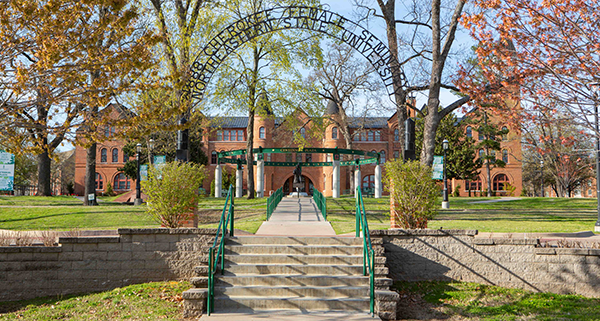Fulfilling Our Ancestors’ Dreams
“Fulfilling Our Ancestors’ Dreams” - 49th Annual Symposium on American Indian set for April 4-9
 TAHLEQUAH - Northeastern State University’s annual Symposium on the American Indian in April
will focus on celebrating the next generation of Indigenous scholars and community
leaders.
TAHLEQUAH - Northeastern State University’s annual Symposium on the American Indian in April
will focus on celebrating the next generation of Indigenous scholars and community
leaders.
The 49th annual Symposium on the American Indian will take place April 4 to 9. This year’s theme is “Fulfilling Our Ancestors’ Dreams.”
Sara Barnett, director of the Center of Tribal Studies, said this year’s theme was inspired by a quote from the President of the Nueta Hidatsa Sahnish College Dr. Twyla Baker, who said “I am a pre-Columbian, post-modern, walking talking anachronism. A throwback to the future, the dream the old ones dreamed.”
“Indigenous authors, lawyers, health care professionals, teachers, philosophers and leaders are using their education for the good of their families and their tribal communities,” Barnett said. “These emerging scholars and leaders are indeed standing on the shoulders of our ancestors, not taking for granted the sacrifices made in order for us to carry on our culture and the legacy of resilience.”
This year’s keynote speakers include University of Washington Tacoma associate professor and Director of Indigenous Education Initiatives for the School of Education Dr. Robin Zape-Tah-Hol-Ah Minthorn, Director of Student Programming and Research for the American Indian Graduate Center Dr. Corey Still and Megan Red Shirt-Shaw, founder of the Natives in America literary publication and University of South Dakota director of Native Student Services.
In addition to the keynote presentations, throughout the week the public is invited to hear from other speakers who will share their Indigenous perspectives on various topics such as art, science, technology, engineering and mathematics (STEM) education and the judicial system in Indian territory.
“The focus of these presentations will be on creating a space for the audience to acquire new perspectives, to see these topics through an Indigenous lens,” Barnett said. “As a result, the audience will better understand contemporary Indigenous scholarship and its relationship to the history of Indigenous people here in the United States. Each of the presenting scholars brings with them their own experience, education and tribal histories, and will address the areas of culture, language and philosophy in their presentations.”
In addition to presentations, other events planned include a screening of the film “The Thick Dark Fog,” a Cherokee Language teaching demonstration and annual powwow to conclude the symposium. Events will be primarily in-person but several virtual sessions are also planned, including two of the keynote speeches.
For a complete list of events visit www.nsuok.edu/symposium or contact the NSU Center for Tribal Studies at 918-444-4350 or email tribalstudies@nsuok.edu.
About the Symposium
The Symposium on the American Indian is a community event welcoming individuals from all demographics including K-12 and college students, educators, professionals and community members. There is no registration fee and events are open to the public.
The symposium began as a one-day event in 1972. Over the next 49 years, the symposium has evolved and expanded into a full week of speakers, concurrent sessions/workshops and film series attracting visitors from across the United States and overseas.
Funding for this program is provided in part by a grant from the Oklahoma Humanities and the National Endowment for the Humanities. This project was also supported in part by the Oklahoma Arts Council, which receives support from the State of Oklahoma and the National Endowment for the Arts.
